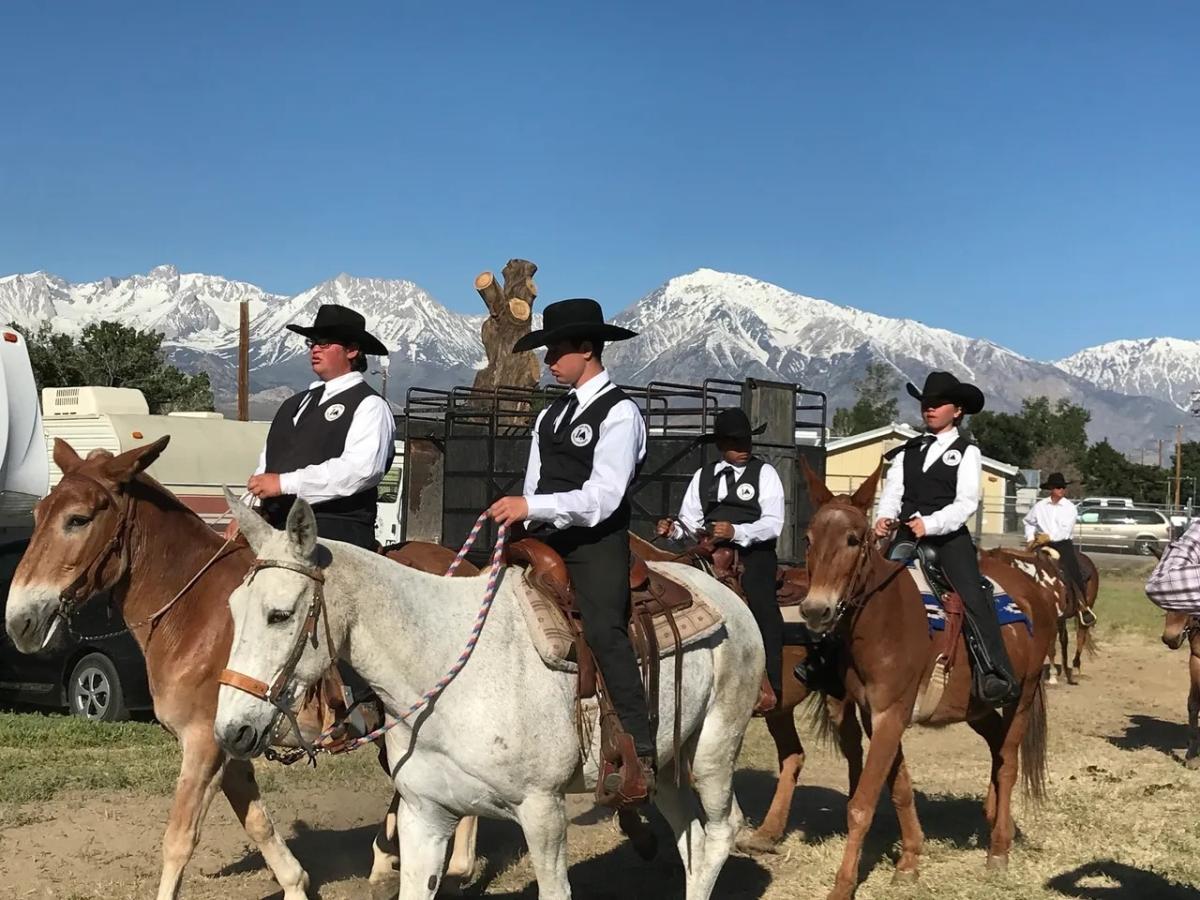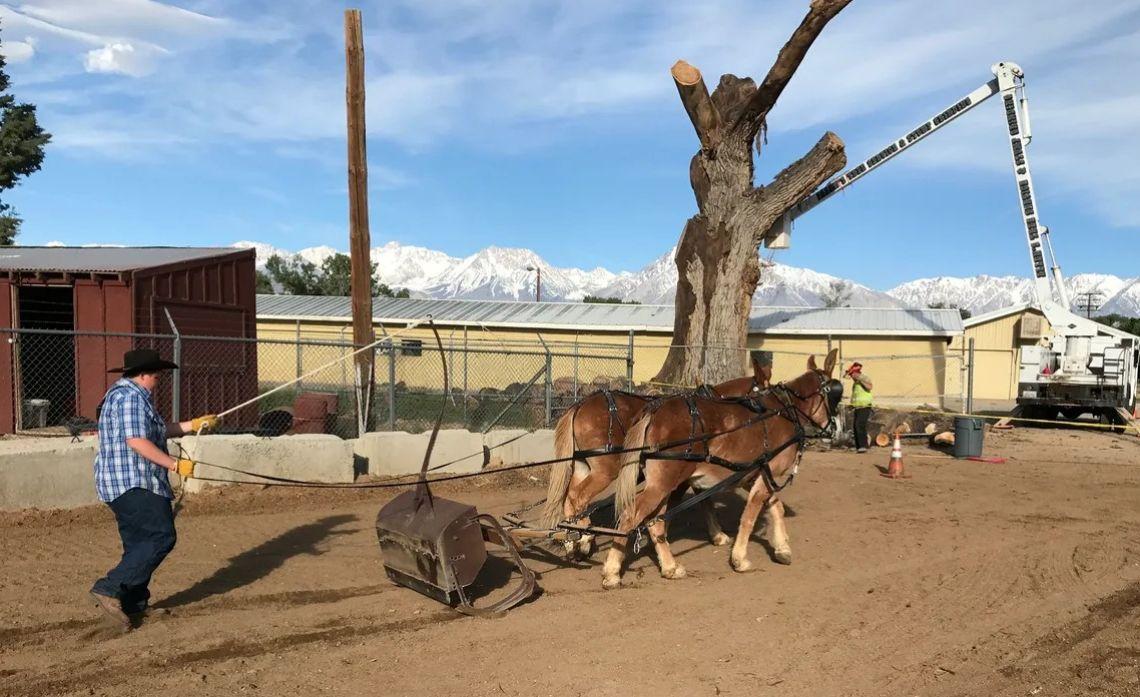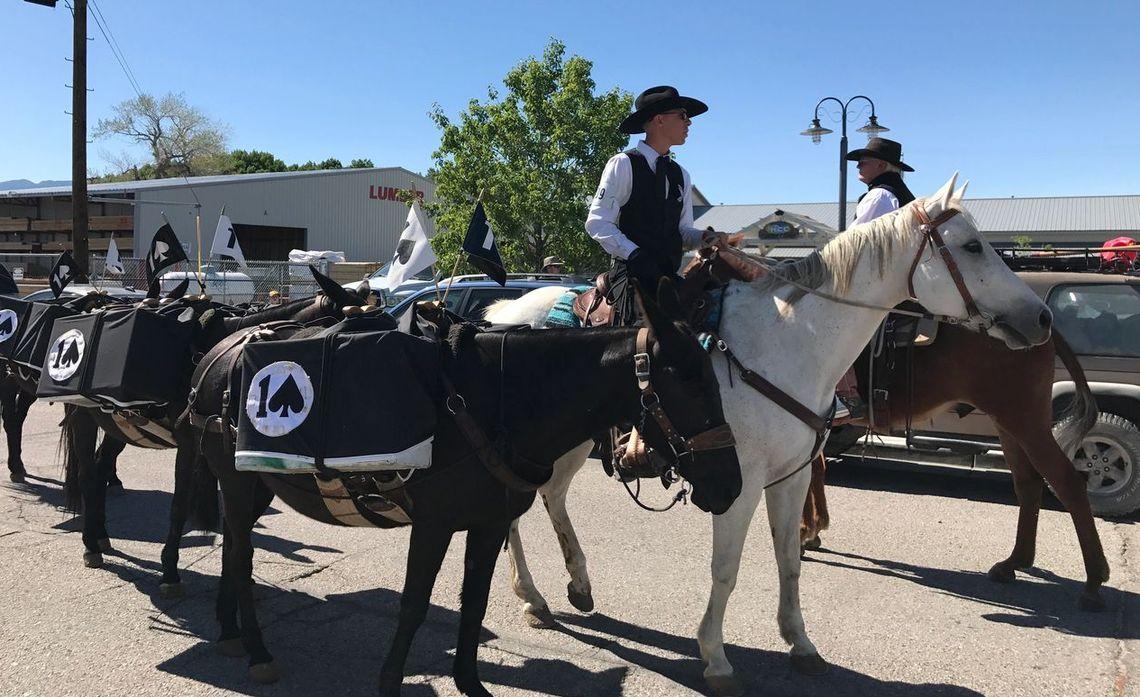Learning History, Life Skills by Handling Mules
Edison International’s philanthropic commitment to One Spade Youth Packers represents the company’s roots and commitment to helping at-risk youth.
High in the Sierra Nevada, a group of kids ranging in age from nine to 17 spends every other weekend from February through May in the tiny mountain community of Kernville. They’re immersed in nature, accompanied only by chaperones and the sounds and movements of their gentle companions: mules. This is no leisure activity; the youngsters, many from economically challenged backgrounds, are working hard to care for the animals, building bonds and gaining lifelong skills along the way.
The One Spade Youth Packers (think mule packers, not the football team) development and leadership program was founded 27 years ago by retired law enforcement officer Reid Hopkins to provide hands-on training to disadvantaged children from across California, teaching them the discipline and commitment it takes to be a responsible mule handler. For the program’s duration, each child is paired with their own mule and is entrusted with its care, including feeding, understanding their physiological needs and learning to be their advocate.
“The end goal of everything we do is to help the kids become more responsible, productive citizens,” Hopkins said. “We teach them about honesty, ethics, setting high standards, respect for others, self-respect and self-esteem. For many of them, it’s the first time they set any kind of goal.”
Since 2018 Edison International has donated $20,000 to the California Recreation Foundation, which supports the nonprofit, enabling it to provide its entire program free to the participants’ families.
It’s a fitting partnership because mules shaped Southern California Edison’s own history. In its earliest days, the company employed teams of saddle makers who scaled the Sierra to build new infrastructure for hydroelectric facilities, which have operated continuously to generate energy for customers. The company continues to use mules to travel to hard-to-reach areas near its facilities. Today, residents and visitors continue to enjoy the work of these mules and earlier settlers who paved the way for the mountain communities to flourish.
“One Spade Youth Packers represents so much more than being an organization that works with mules,” said Calvin Rossi, SCE government relations manager. “Reid Hopkins and his volunteers are positively impacting these kids by giving them the necessary tools to succeed in whatever they choose to do in life: honor, integrity, hard work and teamwork.”
Part of learning about mules also includes understanding their unique place in the history of the Sierra Nevada. Roughly one century ago, the loyal and hard-working animals were responsible for building the network of roads, dams and ditches that made the high country accessible in a way it had never been before. One Spade Youth Packers teaches the historical techniques and proper use of equipment to encourage leadership and character development in new generations of children.
“It really is a window into the past for the kids,” said Hopkins. “They work the ground as they did in 1906, and about the third pass around the field walking behind the plow, they realize that great-grandpa and great-grandma didn’t have it so easy. They develop an appreciation for hard work that they didn’t have before.”
Over the next few months, the kids will continue their training, eventually learning advanced tricks they will display at Bishop’s Mule Days, an annual celebration of the history and culture revolving around mules. While the kids will compete against professional mule handlers for world titles, the Kernville community and their supporters will applaud the kids for the winners they already are.
For more about Edison's philanthropic efforts, visit edison.com/community/ourfundingpriorities.




